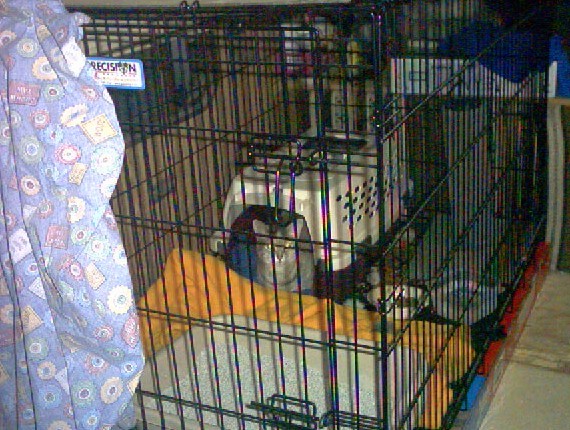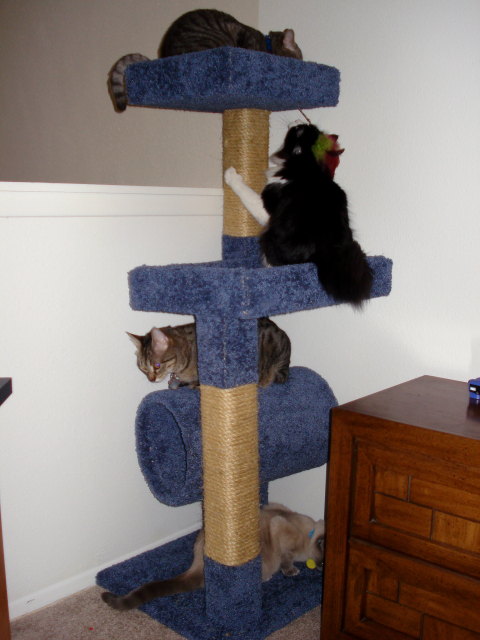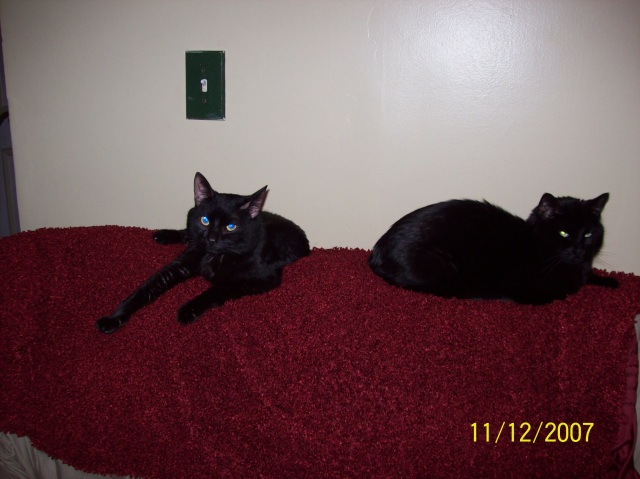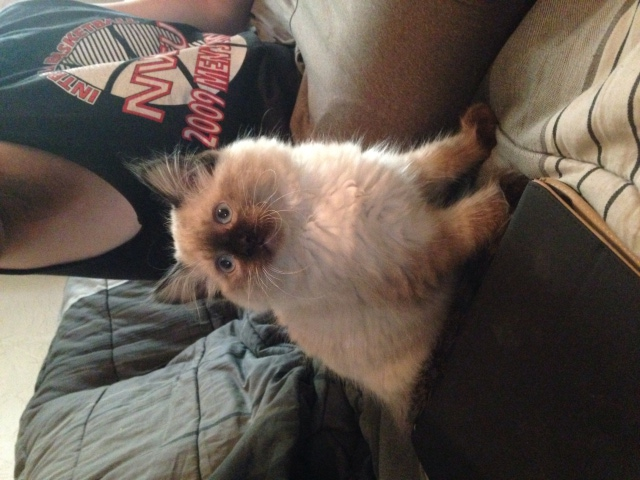QuestionHi there,
I'm currently fostering a stray who we (myself and a feral TNR agency) trapped and neutered. During recovery at my house he seems to be a possible adoption candidate so we decided to keep him inside and work on his social skills.
He's doing well with the social aspect and his health is coming along. I've got to de-worm him but also notice he's got a runny eye and slight weeze when he breathes. I know this is upper resp. and should recess after he gets a chance to recover inside. I'm just wondering if I can supplement his diet with some crushed vitamin C to help him along? I know there are differing opinions on the subject but I used to give my diabetic cat 125mg twice a day to ensure her bad teeth wouldn't affect her insulin absorption with an infection. What are your thoughts of vitamin c, or any other vitamin I can give him to give him a a hand getting better.
Thanks for your time!
Msggie
AnswerHi Maggie,
My personal opinion on Vitamin C is that it's probably not very useful. You may know the reasons why Vitamin C supplementation in cats is controversial, but just in case, here's a quick explanation:
Cats manufacture their own Vitamin C, unlike humans, so they don't require it in their diets. Most evidence suggests that, in order to benefit from additional Vitamin C in battling a virus, a cat would require about 1500mg a day. Unfortunately, Vitamin C tends to be tough on the belly, and most cats will only tolerate about 400-600mg before it causes them diarrhea.
However, there is a supplement that's agreed upon by vets to help cats recover from viral infections. It's an amino acid called lysine. Cats (and humans) require lysine to build antibodies against germs. So it's a good all-around immune booster. But even better, most feline upper respiratory infections are caused by the feline herpes virus. And lysine prevents the herpes virus from replicating by binding a different amino acid called arginine, which herpes requires to build itself. So supplementing a cat with an upper respiratory infection with lysine usually helps a great deal more than giving Vitamin C.
You can use lysine that you find at any pharmacy. The effective dose is 500-1000mg per day for an adult cat, preferably split into two doses. The pills are enormous, so it's best ground up and mixed into food. Or, there are many cat-specific lysine supplements available now. Viralys and Enisyl-F products are a couple of brands. They come in powders, pastes, gels and treats and are available without a prescription. You can get them from your vet or online.
Good luck!
Jessica

 vacation house and taking cat
Questionour permanent home is on a 3 acre semi wooded p
vacation house and taking cat
Questionour permanent home is on a 3 acre semi wooded p
 Cat and Dog Introductions
QuestionHi!
I recently acquired a tortie; although I wa
Cat and Dog Introductions
QuestionHi!
I recently acquired a tortie; although I wa
 Cats continuing to pee on bed(s)
Question
Our cats...Payten and
I have read the
Cats continuing to pee on bed(s)
Question
Our cats...Payten and
I have read the
 old cat not eating
Questionmy cat Tootie xo
QUESTION: I have a 19 y
old cat not eating
Questionmy cat Tootie xo
QUESTION: I have a 19 y
 What kind of cat do I have? What should I breed her with?
Question
What kind?
The people we got my cat fro
What kind of cat do I have? What should I breed her with?
Question
What kind?
The people we got my cat fro